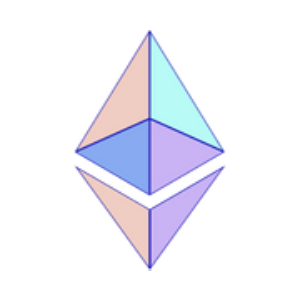- Back to menuPrices
- Back to menuResearch
- Back to menuConsensus
- Back to menu
- Back to menu
- Back to menu
- Back to menuWebinars & Events
About Beacon ETH
Beacon ETH (BETH) is a cryptocurrency token representing a user’s stake in the Ethereum 2.0 (Eth2) Proof-of-Stake blockchain. It is a one-way, one-to-one peg to Ethereum (ETH) locked in the Beacon Chain, the PoS blockchain that will eventually merge with the current Ethereum mainnet to form Ethereum 2.0. BETH is used to denote a user’s stake in the Ethereum 2.0 network and as an incentive for users to participate in securing the Ethereum network, as they receive staking rewards in the form of additional BETH. Holding BETH also enables users to participate in Eth2 governance proposals.
Beacon ETH (BETH) is a type of cryptocurrency token that represents a user's stake in the Ethereum 2.0 (Eth2) Proof-of-Stake blockchain. As part of the Ethereum 2.0 upgrade, the Ethereum network is transitioning from a Proof-of-Work (PoW) to a Proof-of-Stake (PoS) consensus mechanism. This is a significant change aimed at enhancing the network's scalability, speed, and environmental sustainability.
Beacon ETH is unique because it is a one-way, one-to-one peg to Ethereum (ETH) locked in the Beacon Chain, the PoS blockchain that will eventually "merge" with the current Ethereum mainnet to form Ethereum 2.0. Once ETH is staked to the Beacon Chain, it becomes BETH in a user's wallet and begins to earn staking rewards. Please note that the staked BETH cannot be unstaked until the full transition to Ethereum 2.0 is complete.
BETH is used to denote a user's stake in the Ethereum 2.0 network. It is an incentive for users to participate in securing the Ethereum network, as they receive staking rewards in the form of additional BETH. This is a fundamental component of the PoS mechanism, which requires validators to "stake" or lock up their cryptocurrency to participate in the network's operation, including the validation of transactions and creation of new blocks.
Holding BETH also enables users to participate in Eth2 governance proposals, meaning they can vote on future changes and improvements to the Ethereum 2.0 network.
